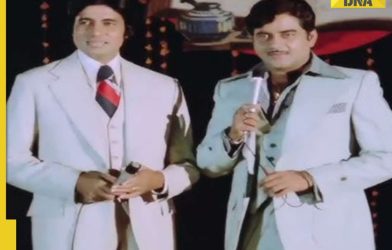Although Dharma Productions is now one of the most influential and successful production and distribution companies in the country, its journey to the top was anything but smooth. Founded by Yash Johar, the company made an impressive debut with Dostana (1980), but a string of subsequent failures left the Johars on the verge of financial ruin. Director-producer Karan Johar, Yash’s son and now a key figure at Dharma, recently opened up about his father’s struggles, revealing that the failure of Agneepath (1990) had the deepest impact on Yash. The company eventually bounced back with Kuch Kuch Hota Hai (1998), which also marked Karan’s directorial debut.
Recalling that his father also ran an export business dealing with handicrafts, Karan shared that it, in fact, played a crucial role in keeping the family afloat while Dharma suffered repeated setbacks in cinema. “The business wasn’t roaring; it was meowing at best. However, the losses from our films were offset because of it. There were times when we could have been homeless, as several of our movies failed one after another,” he said during a conversation with Komal Nahta.
Dubbing their films Ramesh Talwar’s Duniya (1984), Prakash Mehra’s Muqaddar Ka Faisla (1987) and Mukul S Anand’s Agneepath (1990) as “colossal failures”, he added: “These were big films with major directors and actors. But when Agneepath flopped, my father was truly heartbroken. He believed it would be the film that elevated him to the level he aspired to.” Written by Santosh Saroj and Kader Khan, Agneepath starred Amitabh Bachchan, Mithun Chakraborty, Madhavi and Danny Denzongpa. The film was later remade in 2012 with Hrithik Roshan in the lead role, which turned out to be a box office success.
“After that, Gumrah (1993) just broke even and Duplicate (1998) too didn’t work. The came Kuch Kuch Hota Hai in 1998,” he recalled. Starring Shah Rukh Khan, Kajol, Rani Mukherji, Salman Khan and Sana Saeed in the lead roles, Kuch Kuch Hota Hai became a cultural phenomenon and one of the most celebrated films in the careers of all involved, besides ranking as one of the highest-grossing Indian films of that era.









